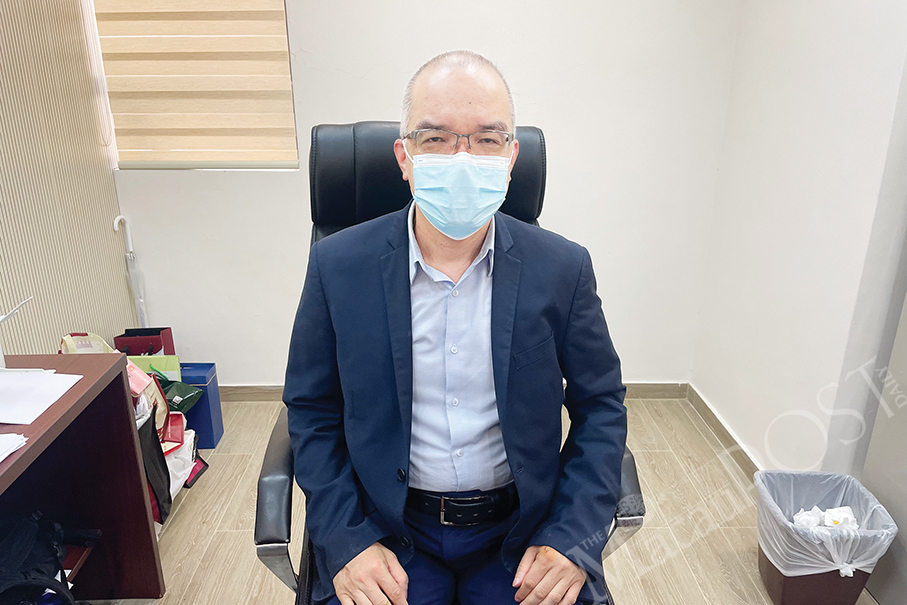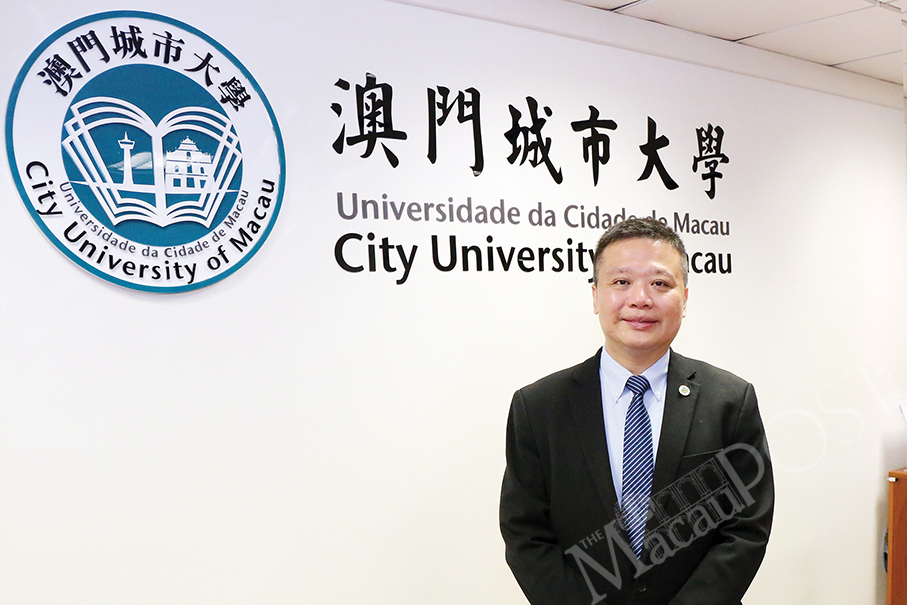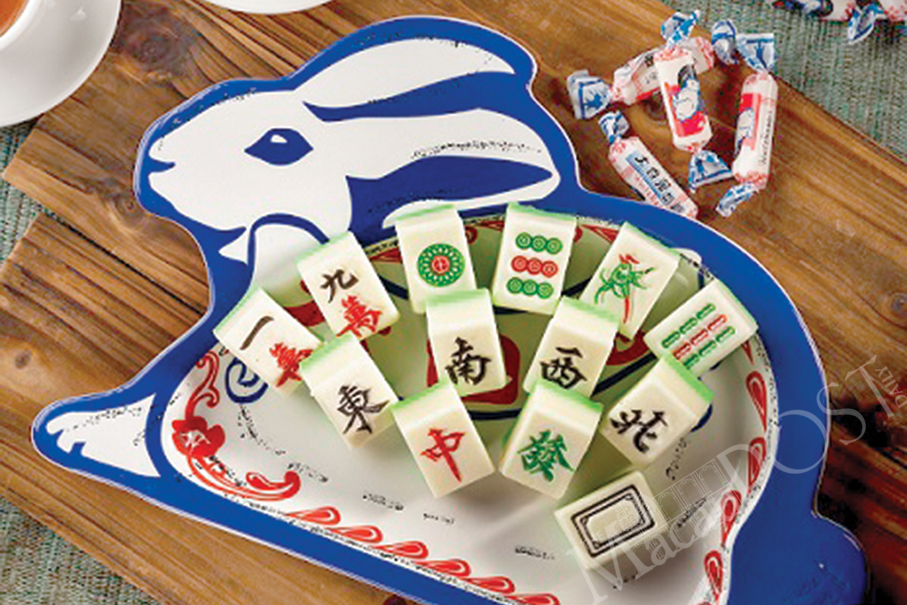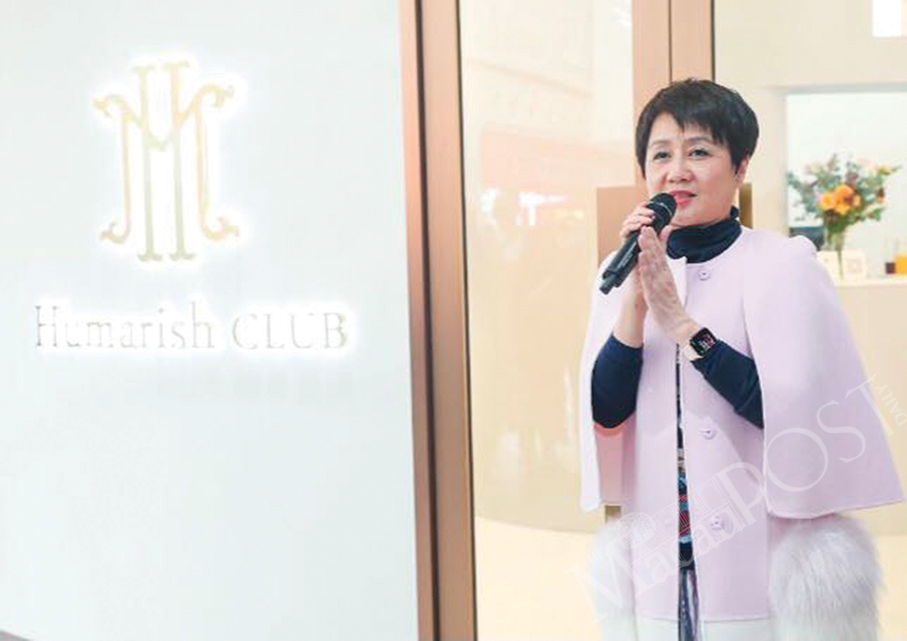Interviews by Yuki Lei
Macau Institute of Management (MIM) President Samuel Tong Kai Chung and City University of Macau (CityU) Vice Rector Ip Kuai Peng told The Macau Post Daily separately last week they believed that Macau’s non-local talent headhunting scheme could benefit the local job market.
Regarding Macau’s non-local talent introduction scheme which will take effect on July 1, The Macau Post Daily conducted two separate interviews with Tong and Ip last Monday and Tuesday about their views on the government’s initiative. Ip is also the director of the Research Centre for Macau Social and Economic Development (RCMSED).
The government-appointed Talents Development Committee points out on its website that the talent introduction system, which consists of three specific programmes – High-end Talents, Outstanding Talents, and Advanced Professionals, aims to leverage the skills, experience, and network of top talents to develop the city’s four new key industries – big health, modern finance, high-tech, and conventions and exhibitions, as well as culture and sport – in collaboration with the Guangdong-Macau In-depth Cooperation Zone in Hengqin. Successful applicants and their spouses and underage children will enjoy the same rights and social welfare as Macau residents, including 15-years free education, medical care and social security, with low corporate and individual income tax rates.
Ip told The Macau Post Daily in an online interview on Tuesday that one of the important purposes of the talent introduction system is to expand the existing “industrial chain” to other industries with the help of non-local talents’ skills, working experience and market networks, adding that Macau’s current industrial chain is “relatively narrow”, with its economic development still revolving around gaming and tourism.
Ip also said he believed that non-local talents would give “full play” to the role of teaching, help Macau cultivate local talents, and foster upward mobility in the local labour force.
According to Ip, the principle that the non-local talent headhunting scheme should adhere to was based on the overall interests of Macau and, therefore, the government should enable all sectors of civil society to fully understand that the non-local talents will never replace local talents.
Tong told The Macau Post Daily at his office in Zape last Monday that the talent introduction system was mainly meant to realise or promote Macau’s economic development, pointing out that in terms of economics human capital is a production factor, i.e., Macau should possess enough human capital resources to promote the development of its four new key industries. He underlined that the qualified human resources imported by Macau are to complement its pool of human resources, adding that the non-local talents would promote the local industrial development and, consequently, create more employment opportunities for locals, benefiting Macau’s own labour force, instead of substituting it.
Does non-local talent headhunting system need to be further optimised?
Ip said that the government’s initiative is the first talent-related system promulgated by Macau in a legal form, while it is also the first law on introducing non-local qualified human resources to Macau. However, Ip stressed, as the law is focused on procedures, specific policies, such as the number of non-local talents to be working in which industries and any possible professional restrictions to be imposed on them, within the law’s framework, were currently still “relatively blank”.
Ip said: “How to simplify the approval process of the non-local talents and improve its efficiency while ensuring openness and transparency during the process, and what kind of supporting facilities, policies and industry opportunities can be provided to the non-local talents in a targeted manner are also questions that the local government needs to respond to.”
Does Macau have enough conditions to attract & retain non-local talents?
Tong said that in combination with the Macau government’s “1+4” model as a core strategy to promote the city’s appropriate economic diversification and the development of the Guangdong-Macau In-depth Cooperation Zone in Hengqin in the four industries of big health, modern finance, high-tech, and conventions and exhibitions, as well as culture and sport, he believed that Macau has the right conditions to attract talents from the mainland and also foreign countries willing to contribute their “wisdom” to the city.
Tong said: “Macau is a development node, where non-local talents can develop their careers for both the mainland and the international markets.”
Concerning insufficient details in the system’s framework, Ip said that it was worth the government consider listing all the support measures for the introduction of talents to the city and the size of the “stage” for the role they are supposed to play, adding: “Only one legal expectation and framework is not enough for them to take into account whether they should develop their career in Macau or not”.
In addition, considering that in the past few years, the approval of Macau’s skilled migration programme has been suspended due to various reasons such as criticisms by the public, causing a large number of qualified skilled migration applications to be still waiting for approval while, at the same time, many applications for temporary residency status renewals have still not been processed, Ip urged the government to properly handle the new applications and temporary residency renewal cases that had been accepted prior to the implementation of the new talent introduction system, at the time of the changeover from the skilled migration programme to the talent introduction system, so as to avoid the previous applications simply being transferred to the talent introduction system.
After the talent introduction system comes into force in July, the current skilled migration programme will become obsolete, Ip pointed out.

Macau Institute of Management (MIM) President Samuel Tong Kai Chung poses after last Monday’s interview in his office at the Macau Chamber of Commerce Building in Zape.
– Photo: Yuki Lei

This undated file photo provided by City University of Macau (CityU) Vice Rector Ip Kuai Peng on Tuesday shows him posing on the campus.









